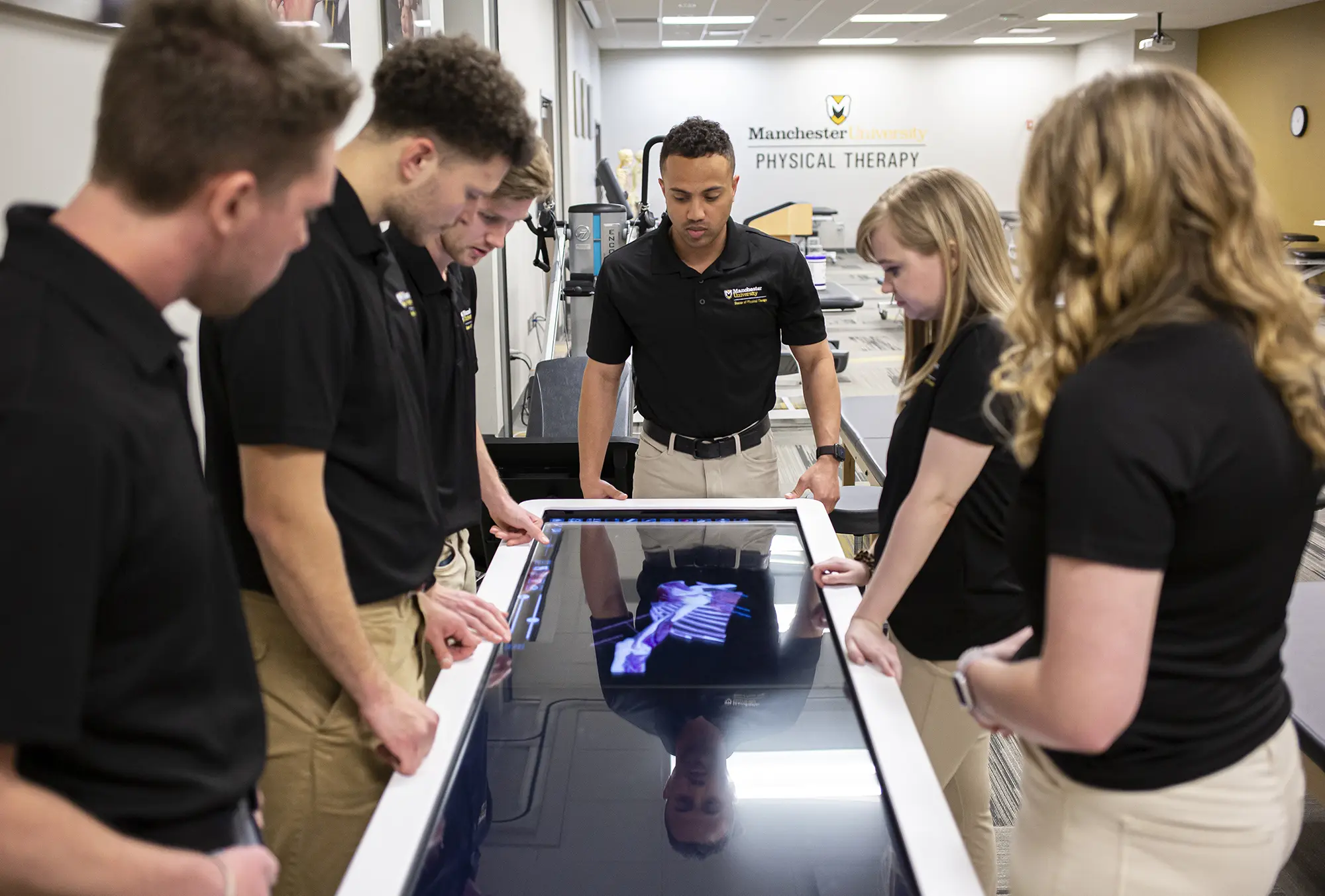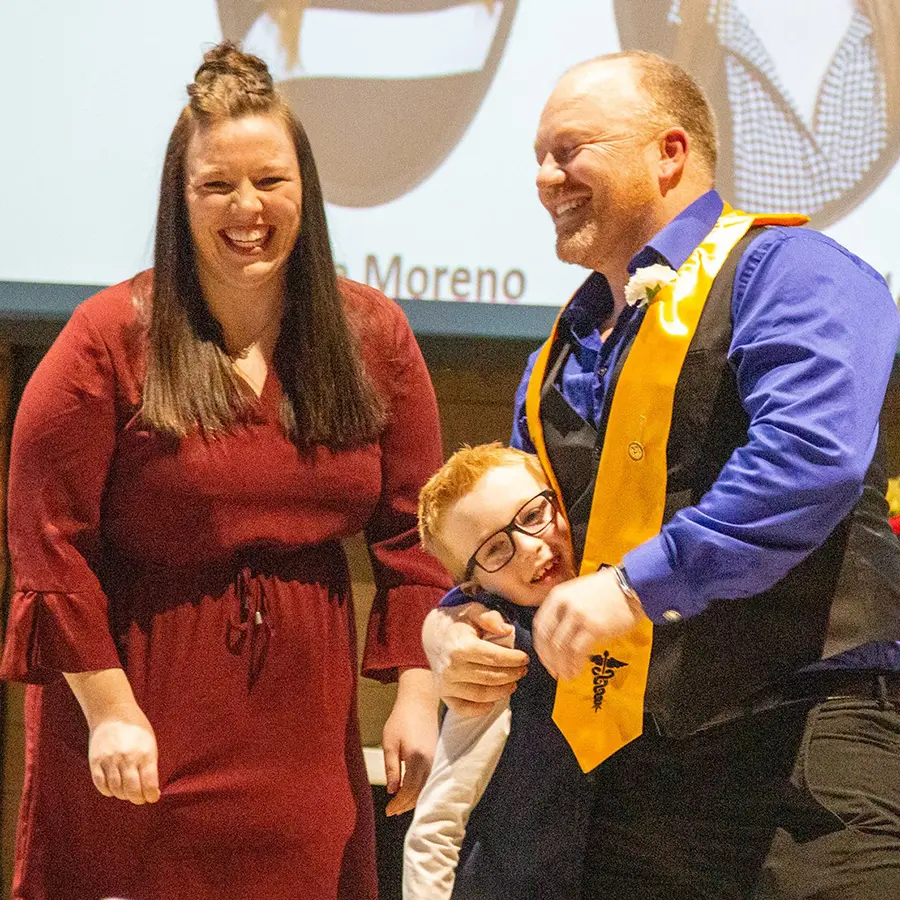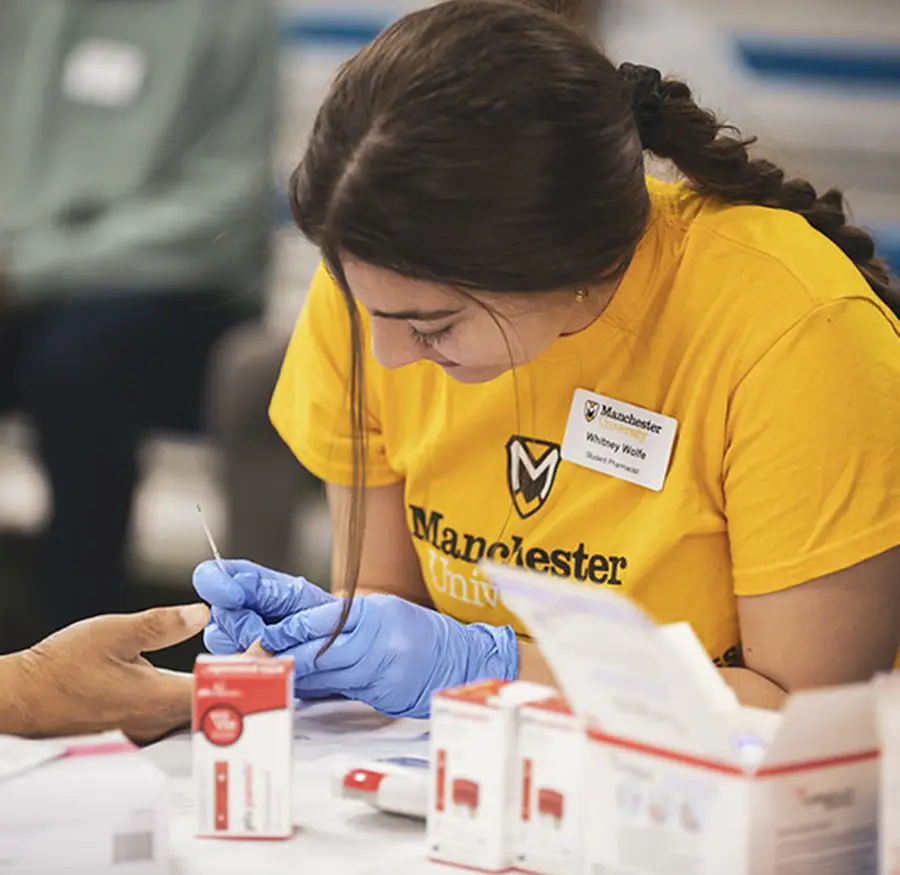

anchester University is streamlining and improving operations, telling our story, and making sure that students are central to all we do.
In October 2022, the Board of Trustees adopted a new five-year strategic plan. It drives Manchester University priorities today and offers clear guidance as we move forward and transition from one president to the next.
Given its importance for the future, the administration outlined the plan at an all-colleague meeting and followed up with small-group sessions. Whole departments are setting aside times to examine what they do, how it fits the plan, and figure out what works and should be amplified or what doesn’t work and needs to change.
The strategic plan is, simply put, a roadmap to fulfill our vision: Manchester University will be known for transformative learning, engaging student experiences, strength from diversity, deep mentoring relationships, future-focused programs and our unwavering service to our students, neighbors and the world.
Our Mission Statement remains the guiding force and our rallying cry as we move forward: Manchester University respects the infinite worth of every individual and graduates persons of ability and conviction who draw upon their education and faith to lead principled, productive, and compassionate lives that improve the human condition.
The mission – our “why” – remains unchanged, while who, where, when, and how will evolve as new opportunities arise. Student success and long-term vitality are imperatives.
The strategic plan drills down on three areas designed to ensure Manchester’s continuing relevance, sustainability and contribution to improving the human condition.
Theme 1
Theme 1 is making known what makes the teaching and learning at Manchester distinctive. We will continue to adapt academic programs to meet student and prospect employer needs and expectations. This means more and varied opportunities for students to make friends, find mentors and participate in engaging experiences on and off campus.
The theme makes sure that students always come first. This means engaging the diversity of our community in how we teach, how we structure the curriculum and student learning, and how we build relationships between students and mentors. We will continue to prioritize effective teaching, strong internal partnerships, efficient processes and equitable policies that support and challenge our students.
Theme 2
Theme 2 prioritizes making Manchester an inspiring place to learn and work. It seeks to build community, promote an inclusive culture and serve students well from first inquiry through graduation and as they become active alumni. It will also help colleagues know where they fit into this student-centered approach and how they can help move us forward.
Theme 3
Theme 3 focuses on investment and growth. Our future depends on wise stewardship of our resources. This means more fully engaging alumni and investing in robust community and business partnerships. It also means reviewing the financial viability of academic programs each year and regularly reviewing and revamping operations with an eye toward efficiency and cost effectiveness. It recommits us to generating revenue each year so it can be reinvested.
The aim is to grow enrollment with academic programs that are relevant, accessible and sustainable; foster a storytelling culture that celebrates student, alumni and colleague accomplishments; and prioritize long-term sustainability in all financial and investment decisions. This means Manchester will seek significant financial support from alumni and existing donors while looking for new donors and partners.
Each theme offers measurable goals, action steps, timelines and key performance indicators to track progress, making it a living document focused on real outcomes.
“Much of what the strategic plan outlines is not new – we were already doing much of this – but we weren’t necessarily doing everything in an intentional way,” said President Dave McFadden. “We also had some processes that weren’t student-friendly or simply weren’t efficient and needed an overhaul. If we put everything through the lens of the strategic plan, every move will make us stronger. That includes actively looking for new initiatives and responding quickly when opportunities arise.”
- Alumni are now getting a monthly alumni e-newsletter – a one-stop shop filled with information about what’s happening and how they can continue to be involved.
- In years past, the Pharmacy Program had an annual Day of Service where pharmacy students displayed posters showing their volunteer service and its impact. This year, the Day of Service was live, organized for McMillen Park Community Center in Fort Wayne, offering free health screenings and information in a historically underserved area. The RACE (Restore, Assess, Connect, Educate) Into Wellness Community Health Fair included MU students in pharmacy, nursing and athletic training as well as area health organizations.
- We’ve set up a page to celebrate student achievements from first year through Commencement. The Merit system helps us share student stories on their personal profiles, as well as their high schools, elected representatives and hometown newspapers.
- Our undergraduate student body has become more diverse in the past few years, and we are asking students what helped them. Biology-chemistry major Sefunmi Babatunde recently shared with the President’s Diversity and Inclusion Council that she is paying it forward by mentoring younger students because in her first year she was assigned a peer mentor who was also an African American female.
- We are improving processes for completing and submitting course registration forms in response to student input.
- The Black Student Union, which is making a comeback after the pandemic, is reimagining its activities. A new event is the Sneaker Ball, a formal dance where everyone dresses up but wears sneakers.
- In addition to improved learning spaces and space for a clinic, Manchester University Fort Wayne construction is adding space for growth in the health sciences. We don’t know today what that will be, but the experience of the past 10 years tells us it is coming.
- In the Office of the Registrar, we learned that duplication of effort was clogging the system and slowing response times significantly. As a response, the process of requesting and delivering information was turned on its head. Changes in the office already speeded up Dean’s List hometown announcements by a matter of weeks.
- We’ve brought back a protected time for convocations – what we now call Values, Ideas and the Arts (VIA) – and the presentations are often used in the experience courses’ curriculum.
- With changing demographics of our student body, a generous donor gave us start-up costs to launch a gospel choir. We hope to hear them in the fall.
“The possibilities are endless,” McFadden said. “Our priority is the student experience. If we get that right, then the questions we ask and the answers we get are the ones we need. I might sound like a broken record, but the world needs more Manchester graduates!”

